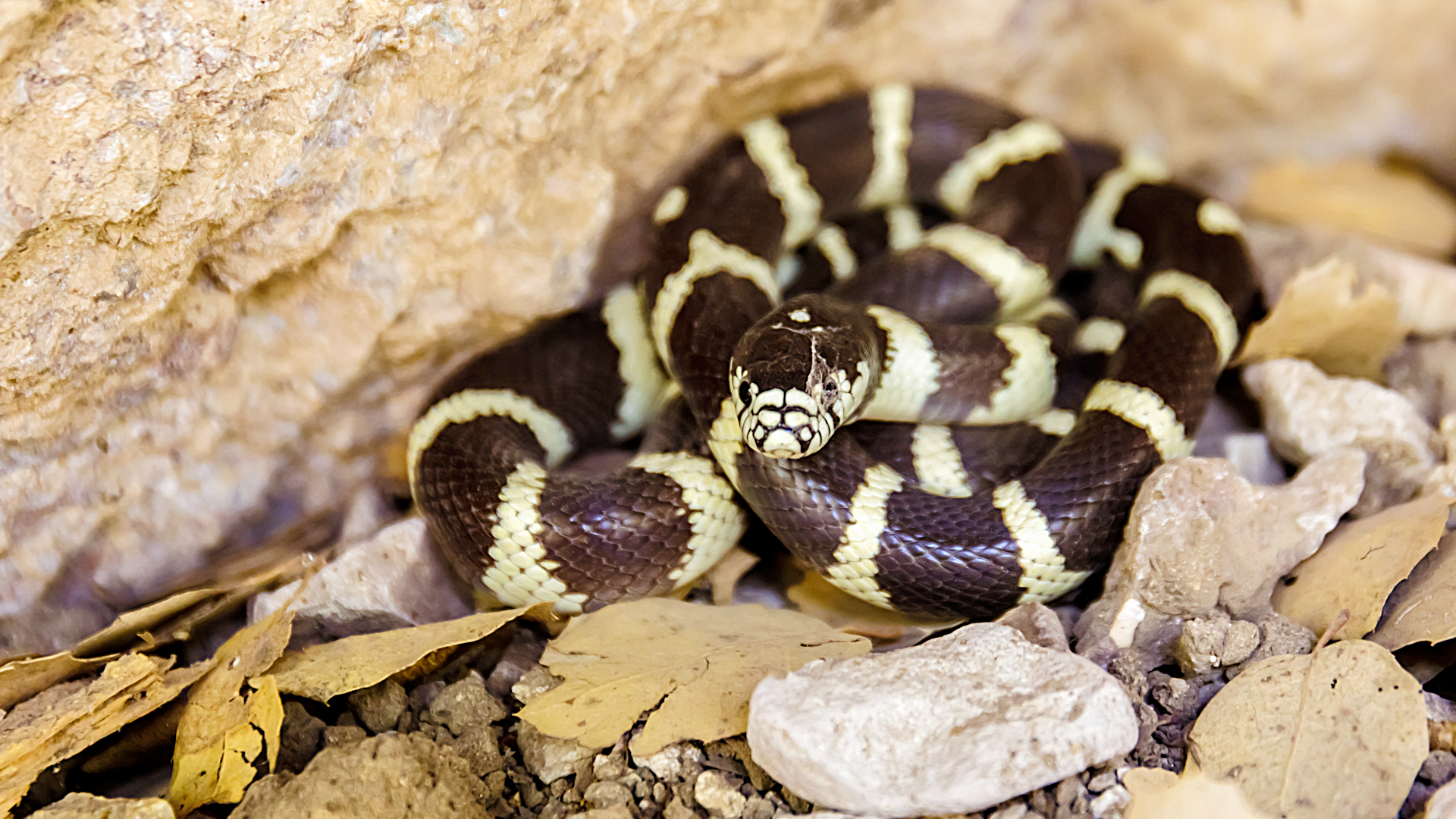Caring for your California Kingsnake
California Kingsnake
Lampropeltis californiae
Basic Information:
California Kingsnakes are hardy, adaptable colubrids native to the western United States and northern Mexico. Named for their tendency to eat other snakes—including venomous species—they’re known for their striking banded or striped patterns, which can be black, brown, white, or cream. They are non-venomous constrictors and generally docile, though they may be squirmy or defensive when young. Adults reach 3–4 feet on average, with some individuals exceeding 5 feet.
Lifespan:
California Kingsnakes can live 15–20 years in captivity with proper care.
Sexing:
Sexing is best done through probing or popping by an experienced keeper or reptile vet. Males typically have longer tails that taper more gradually.
Enclosure:
Juveniles: 20-gallon long tank (30” x 12” x 12”) with secure lid.
Adults: 40-gallon breeder (36” x 18” x 18”) or larger.
Provide multiple hides, climbing branches, and enrichment items. Ensure excellent escape-proofing—kingsnakes are notorious for finding gaps.
Substrate:
Aspen shavings, cypress mulch, or paper towels.
Avoid cedar or pine due to toxic oils.
Spot clean regularly and fully replace substrate monthly.
Lighting & Temperature:
Basking Spot: 88–90°F
Ambient Temperature: 75–80°F
Cool Side: 70–75°F
No special UVB required, but a low-level UVB bulb (5.0) may provide additional benefits.
Use a thermostat-regulated heat mat or ceramic heat emitter if needed for nighttime temps.
Humidity:
Maintain 40–60% humidity.
Increase slightly during shedding with light misting or a humid hide.
Food:
Feed appropriately sized frozen-thawed rodents (mice or rats depending on size).
Juveniles: every 5–7 days|
Adults: every 7–14 days
Do not handle for at least 48 hours after feeding to prevent regurgitation.
Water:
Provide clean water in a sturdy dish large enough for soaking.
Change water daily or when soiled.
Supplementation:
None typically needed if fed a proper diet of whole prey.
Calcium or multivitamin supplementation is not necessary for kingsnakes.
California Kingsnakes are immune to rattlesnake venom and will actively hunt and consume venomous snakes in the wild—even ones larger than themselves


